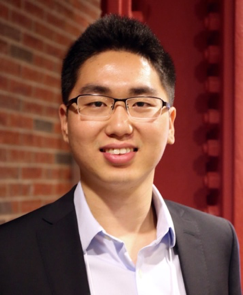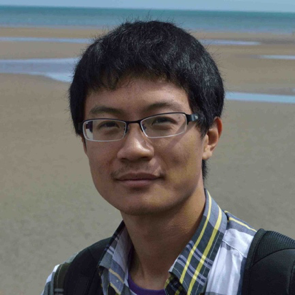第十六期
(CIPS ATT 16)
日程安排
| 时间 | 主题 | 特邀讲者 |
| 8月24日上午 | (8:30 – 10:00)Natural Language Interface to Data | Xifeng Yan |
| (10:30-12:00)From Data to Model Programming: Injecting Structured Priors for Knowledge Extraction |
Xiang Ren | |
| 8月24日下午 | (14:00-17:30)Deep Learning for Graphs: Models and Applications | Jiliang Tang |
| 8月25日上午 | (8:30-12:00)Tutorial on Explainable Recommendation and Search | Yongfeng Zhang |
| 8月25日下午 | (14:00-15:30)知识指导的自然语言处理 | 林衍凯 |
| (16:00-17:30)阅读理解中的推理和符号机制 | 吕正东 |
T1 :
 |
Title: Natural Language Interface to Data
Time: 8:30 – 10:00 Abstract: A large amount of the world’s data is stored in relational databases and knowledge graphs. One has to either learn programming languages like Structured Query Language (SQL) or reply on canned query forms to query data, even for very simple queries. SQL and SPARQL are the most commonly used interface for accessing relational databases and knowledge graphs, respectively. However, it requires users to acquire good understanding of such query languages, data schema, and database running environment, which could take long training time and is not practical for users who query data occasionally. In this tutorial, I will give an introduction of research progress in this area and discuss future research directions. Bio: Xifeng Yan is a professor at the University of California at Santa Barbara, holding the Venkatesh Narayanamurti Chair of Computer Science. He received his Ph.D. degree in Computer Science from the University of Illinois at Urbana-Champaign in 2006 and was a research staff member at the IBM T. J. Watson Research Center between 2006 and 2008. His work is centered on modeling, mining, and searching data, especially graph and text data. His contribution can be found in data mining, database systems, natural language processing, computer security, bioinformatics, etc. His works were extensively referenced, with over 18,000 citations per Google Scholar and thousands of software downloads. He received NSF CAREER Award, IBM Invention Achievement Award, ACM-SIGMOD Dissertation Runner-Up Award, and IEEE ICDM 10-year Highest Impact Paper Award. |
 |
Title: From Data to Model Programming: Injecting Structured Priors for Knowledge Extraction
Time: 10:30-12:00 Abstract: Deep neural models have achieved state-of-the-art performance on knowledge extraction tasks, from sequence tagging, to relation extraction, and knowledge reasoning. Yet, these data-hungry models have heavy reliance on human-labeled training data and often operate as “black-box” components, slowing down the development of downstream applications. In this talk, I will introduce our recent advances on imposing structured prior knowledge into deep neural models for knowledge extraction, both at the input data level (i.e., programming the “data”) and at the model architecture level (i.e., programming the “model”). In particular, I will discuss how to faithfully incorporate domain dictionaries in named entity recognition and how to softly ground semantic rules in relation extraction, as examples of input-level structured priors. Towards model programming, I will present a graph neural network-based framework, for capturing multi-relational structured priors as part of the model architecture in natural language inference that involves commonsense reasoning. Together, these solutions form a roadmap for going from “data” to “model” programming with structured priors. Bio: Xiang Ren is an assistant professor of Computer Science at USC with affiliated appointment at USC ISI. He is also the director of Intelligence and Knowledge Discovery (INK) Research Lab, the Information Director of ACM SIGKDD and Data Mining (SIGKDD), and member of USC Machine Learning Center. Priorly, he was a research scholar at Stanford University, and received his Ph.D. in Computer Science from University of Illinois Urbana-Champaign. Dr. Ren’s research focuses on developing label-efficient computational methods that extract machine-actionable knowledge (e.g., compositional, graph-structured representations) from natural-language data, as well as performing neural reasoning over the knowledge structures. His research leads to a book and over 50 publications, was covered in over 10 conference tutorials (KDD, WWW, NAACL), and received awards including Google AI Faculty Award, JP Morgan AI Research Award, Amazon Research Award, ACM SIGKDD Dissertation Award (2018), WWW Best Poster runner-up (2018), David J. Kuck Outstanding Thesis Award (2017), Google PhD fellowship (2016), and Yelp Dataset Challenge Award (2015). He’s part of the Forbes’ Asia 30 Under 30. |
T2 :
 |
Title: Deep Learning for Graphs: Models and Applications
Time: 14:00-17:30 Abstract: Graphs provide a universal representation of data with numerous types while deep learning has demonstrated immense ability in representation learning. Thus, bridging deep learning with graphs presents astounding opportunities to enable general solutions for a variety of real-world problems. However, traditional deep learning techniques that were disruptive for regular grid data such as images and sequences are not immediately applicable to graph-structured data. Therefore, marrying these two areas faces tremendous challenges. In this tutorial, I will provide a comprehensive overview of recent advances in deep learning for graphs including both models and applications. In particular, I will introduce some basic concepts, review state of the art algorithms, and illustrate various important applications. Finally, I will summarize the tutorial with discussions on open issues and challenges. Bio: Jiliang Tang is an assistant professor in the computer science and engineering department at Michigan State University since Fall@2016. Before that, he was a research scientist in Yahoo Research and got his PhD from Arizona State University in 2015. His research focuses on developing learning, mining and optimization algorithms to glean value in data from the graph perspective and their applications on social, web and education domains. He was the recipients of The NSF Career Award, The Best Paper Award in ASONAM2018, the Criteo Faculty Research Award 2018, the Best Student Paper Award in WSDM2018, the Best Paper Award in KDD2016, the runner up of the Best KDD Dissertation Award in 2015, and the best paper shortlist of WSDM2013. He has served as the editors and the organizers in prestigious journals (e.g., TKDD) and conferences (e.g., KDD, WSDM and SDM). He has filed more than 10 US patents and has published his research in highly ranked journals and top conference proceedings, which received more than 8000 citations with h-index 42 and extensive media coverage. More details can be found via https://www.cse.msu.edu/~tangjili/. |
T3 :
 |
Title: Tutorial on Explainable Recommendation and Search
Time: 8:30 – 12:00 Abstract: Explainable recommendation and search attempt to develop models or methods that not only generate high-quality recommendation or search results, but also intuitive explanations of the results for users or system designers, which can help to improve the system transparency, persuasiveness, trustworthiness, fairness and effectiveness. This is even more important in personalized search and recommendation scenarios, where users would like to know why a particular product, web page, news report, or friend suggestion exists in his or her own search and recommendation lists. The tutorial focuses on the research and application of explainable recommendation and search algorithms, as well as their application in real-world systems such as search engine, e-commerce and social networks. The tutorial aims at introducing and communicating explainable recommendation and search methods to the community, as well as gathering researchers and practitioners interested in this research direction for discussions, idea communications, and research promotions. Bio: Yongfeng Zhang is an Assistant Professor in the Department of Computer Science at Rutgers University (The State University of New Jersey). His research interest is in Information Retrieval, Recommender Systems, Machine Learning, and Internet Economics. In the previous he was a postdoc at UMass Amherst, and did his PhD and BE in Computer Science at Tsinghua University, with a BS in Economics at Peking University. He is a Siebel Scholar of the class 2015. He has been consistently working on explainable recommendation and search systems, and organized as well as co-chaired the first and second International Workshop on Explainable Recommendation and Search, co-located with SIGIR 2018 and 2019. |
T4:
 |
Title: 知识指导的自然语言处理
Time: 14:00 – 15:30 Abstract: 近年来深度学习技术席卷自然语言处理(NLP)各大领域。作为典型的数据驱动方法,深度学习面临可解释性不强等难题,如何将人类积累的大量语言知识和世界知识引入深度学习模型,是改进NLP深度学习模型性能的重要方向,同时也面临很多挑战。本报告将介绍知识指导的自然语言处理的最新进展与趋势。 Bio: 林衍凯,腾讯微信模式识别中心高级研究员。博士毕业于来自清华大学自然语言处理组, 由孙茂松教授和刘知远副教授共同指导,主要研究方向为知识图谱表示、构建和应用。目前已在人工智能、自然语言处理等领域的著名国际会议IJCAI,AAAI,EMNLP,ACL发表相关论文多篇,Google Scholar引用数超过1400。曾获2017年百度奖学金、2018年清华大学学术新秀。 |
 |
Title: 阅读理解中的推理和符号机制
Time: 16:00 – 17:30 Abstract: 自然语言理解,尤其是篇章级的理解,会远远超出局部的语言结构,而是会非常多地依赖大尺度结构的洞察和离散操作,同样也会大量涉及对知识的多种形式的表示和使用。吕博士会讨论在垂直领域文本理解中将神经网络和符号智能结合的思考和实践,以及各种形式的推理在文本理解中的使用。 Bio: 吕正东,计算机博士,毕业于西安邮电学院(工学学士)、清华大学(工学硕士)和俄勒冈健康与科学大学(OHSU,计算机博士)。他曾于德州大学奥斯汀分校师从国际大数据及人工智能国际权威Inderjit Dhillon教授(ACM、IEEE、SIAM院士),之后曾任职于微软亚洲研究院、华为诺亚方舟实验室等著名研究机构。吕博士长期从事机器学习及人工智能的研究,在深度学习、自然语言处理和半监督学习等领域卓有建树,是深度学习领域(尤其是自然语言处理方向)具有世界顶尖水平并享有国际声誉的科学家和技术专家。他于2013年初创立华为诺亚方舟实验室的深度学习团队,从零开始建立软件及硬件平台,并在两年内带领诺亚方舟实验室在神经语言智能领域成为国际一流的研究机构。2013年,吕正东博士提出基于检索的自动对话技术,现已成为主流聊天机器人(如微软小冰)的基础技术框架。他是国际上将卷积神经网络(CNN)用于自然语言的先锋学者之一,并是最早将CNN用于语义匹配的研究者,其模型被后来的聊天机器人广泛采用。2015年,吕正东博士的团队发明世界上第一个完全基于深度学习的生成式聊天机器人“神经响应机”(Neural Responding Machine),引起广泛反响。同年,他提出基于深度学习的推理模型Neural Reasoner,解决了2014年Facebook AI Research提出的20个推理任务中最困难的两个,受邀在深度学习顶级会议NIPS RAM Workshop上宣讲,相关论文被评为2015年arXiv十佳论文之一。2016年初,吕正东博士提出全神经网络的问答系统Neural Enquirer,其论文与Google Brain以及Facebook AI Research的类似工作同时发表并引起广泛关注。吕正东博士同时也对机器翻译领域有卓越贡献,其提出的基于覆盖(coverage)的注意力机制现在已经成为神经机器翻译的通用技术之一,并成为谷歌商用翻译模型的重要组件。吕正东博士是神经符号学具有国际领先水平的研究者,提出了分布表示和符号表示深度融合的新框架,并在带有推理的问答系统上取得大幅度的效果提升。 |
